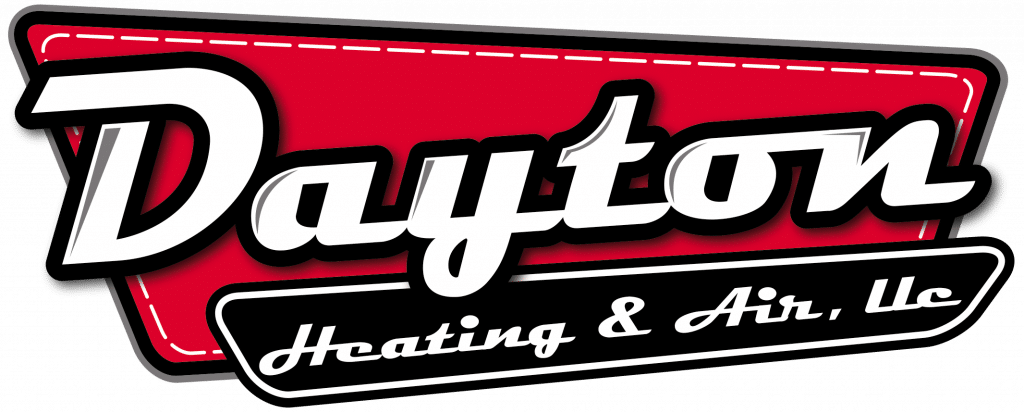3499 NW 97th Blvd unit 12, Gainesville, FL 32606
daytonheatandair@gmail.com
AC Unit Installations in Gainesville, FL
Get The Right AC Unit For Your Home or Business


Consultative & Friendly AC Unit Installations
Getting a new air conditioner is an exciting time for your entire household. A new AC means having a cooler, more comfortable home, cleaner indoor air, lower utility bills, and more. If you’re looking for a new AC, Dayton Heating & Air is here to help! We carry an impressive line-up of units from trusted brands and provide fast, affordable installations.
Our team at Dayton Heating & Air takes a holistic approach to your home comfort with a range of heating and cooling services. We offer expert air conditioner replacements, including on short notice, for homeowners in Gainesville and greater North Florida. Each air conditioner replacement we install is our best and guaranteed work, so you can rest easy knowing that your family’s comfort is taken care of.
Keep reading and we’ll explain exactly how Dayton Heating & Air will do the job right for you!
Honest & Friendly AC Unit Installations
Getting a new air conditioner is an exciting time for your entire household. A new AC means having a cooler, more comfortable home, cleaner indoor air, lower utility bills, and more. If you’re looking for a new AC, Dayton Heating & Air is here to help! We carry an impressive line-up of units from trusted brands and provide fast, affordable installations.
Our team at Dayton Heating & Air takes a holistic approach to your home comfort with a range of heating and cooling services. We offer expert air conditioner replacements, including on short notice, for homeowners in Gainesville and greater North Florida. Each air conditioner replacement we install is our best and guaranteed work, so you can rest easy knowing that your family’s comfort is taken care of.
Keep reading and we’ll explain exactly how Dayton Heating & Air will do the job right for you.
-
How Do I Know What Size and How Many Tons of AC I Need?
Ton (or tonnage) is a unit of measurement that tells you how much heat your air conditioner can cool per hour. One ton can cool 12,000 BTU (BTU is a measurement of heat output) per hour.
The general rule of thumb is that an air conditioner needs 20 BTU for each square foot of space. So, a 12,000 BTU air conditioner can cool an indoor space of about 600 sq ft. Considering windows, doors, and heat lost through walls and surfaces, the appropriate room size for that AC should be between 400 and 550 sq ft. Therefore one-ton AC can comfortably cool 400 - 550 sq ft.
So, for a 1,500 sq ft home and a 1,600 sq ft home, you're talking about between 30,000 and 32,000 BTU to cool your indoor space. In that situation, you would require a 3-ton AC unit.
The reason why getting the right AC tonnage is essential is that it helps reduce future system issues, thus ensuring it serves you efficiently for its entire life span. An undersized AC will have to work harder and longer to cool your space, consuming a lot of energy in the process, while an oversized AC will turn on and off more often, leading to increased wear and tear.
-
How Can I Maximize My New Unit’s Lifespan?
When the summer weather heats up in North Florida, you need an air conditioner you can rely on to keep your home cool and comfortable all season long. Keeping your AC in good shape for the longest time possible is as easy as joining our Comfort Club.
Not only will you get biannual system tune-ups from our maintenance experts at Dayton Heating & Air, but also you get exclusive benefits and discounts for other parts and services. During the tune-ups, we’ll thoroughly clean, inspect, and adjust your unit to boost its performance and efficiency.
Here are a few highlights of working with Dayton Heating & Air to keep your new system running smoothly:
• Service by seasoned NATE-certified pros
• Honest, straightforward pricing
• Flexible appointment scheduling
• Commitment to your utmost satisfaction!
• Maintenance plans for all makes and models of AC
• Frequent specials and promotions
Call us today to learn more!
-
How Do I Know What Size and How Many Tons of AC I Need?
Ton (or tonnage) is a unit of measurement that tells you how much heat your air conditioner can cool per hour. One ton can cool 12,000 BTU (BTU is a measurement of heat output) per hour.
The general rule of thumb is that an air conditioner needs 20 BTU for each square foot of space. So, a 12,000 BTU air conditioner can cool an indoor space of about 600 sq ft. Considering windows, doors, and heat lost through walls and surfaces, the appropriate room size for that AC should be between 400 and 550 sq ft. Therefore one-ton AC can comfortably cool 400 - 550 sq ft.
So, for a 1,500 sq ft home and a 1,600 sq ft home, you're talking about between 30,000 and 32,000 BTU to cool your indoor space. In that situation, you would require a 3-ton AC unit.
The reason why getting the right AC tonnage is essential is that it helps reduce future system issues, thus ensuring it serves you efficiently for its entire life span. An undersized AC will have to work harder and longer to cool your space, consuming a lot of energy in the process, while an oversized AC will turn on and off more often, leading to increased wear and tear.
-
How Can I Maximize My New Unit’s Lifespan?
When the summer weather heats up in North Florida, you need an air conditioner you can rely on to keep your home cool and comfortable all season long. Keeping your AC in good shape for the longest time possible is as easy as joining our Comfort Club.
Not only will you get biannual system tune-ups from our maintenance experts at Dayton Heating & Air, but also you get exclusive benefits and discounts for other parts and services. During the tune-ups, we’ll thoroughly clean, inspect, and adjust your unit to boost its performance and efficiency.
Here are a few highlights of working with Dayton Heating & Air to keep your new system running smoothly:
- Service by seasoned NATE-certified pros
- Honest, straightforward pricing
- Flexible appointment scheduling
- Commitment to your utmost satisfaction!
- Maintenance plans for all makes and models of AC
- Frequent specials and promotions
Call us today to learn more!
-
What Are The Top Air Conditioning Brands?
Numerous brands have made a name for themselves within the air conditioning industry and are thus recognized for their reliability, performance, and top-of-the-line features. Preeminent brands in this sector include Carrier, Trane, Lennox, Goodman, and Daikin. These brands are highly recommended by industry experts and users alike due to their efficient cooling systems, innovative technologies, and overall durability. It's always wise to refer to trusted reviews and evaluations, such as those by Consumer Reports, to determine the best brand for your specific needs.
-
Do You Need a Permit To Install an AC Unit?
Most localities require the acquisition of a permit prior to the installation of an AC unit as a means of ensuring that the installation conforms to regional building codes and safety standards. In many cases, failing to obtain a permit can result in fines, potential eviction, or problems when attempting to sell the property in the future.
For instance, the Florida Statute Chapter 489 requires licensed HVAC contractors to acquire a building permit prior to installing, removing, or replacing an AC system, as regulated by the Florida Building Code. More specifically, the statute decrees that said contractors must obtain a permit to install an AC heating or cooling system, install an AC wall unit by cutting out or removing part of the wall, and/or replacing a condenser, air handler or heating elements.
-
Can You Install Your Own Split Unit AC?
It is possible for individuals with technical skills to install a split AC unit. Nonetheless, seeking the help of a professional HVAC technician is highly recommended for the following reasons:
- Safety Concerns: The installation process involves handling several electrical components and refrigerants that a lot of people are unfamiliar with. Thus, a lack of knowledge and general neglect of safety protocols during these interactions can result in hazardous situations.
- Maximized Efficiency: Without proper knowledge of electrical components it is difficult to ensure that an AC unit will be installed accurately and therefore will operate at its maximum efficiency, have a prolonged life-span, and produce noticeable energy and cost savings over time.
- Warranty Implications: Many manufacturers outline in their terms that the product warranty may become void if the installation isn't performed by a certified professional. This could mean potentially hefty out-of-pocket expenses for repairs or replacements in the future and the loss of insurance if installed inefficiently.
- Benefit of Professional Insight: A trained technician can provide valuable recommendations on the optimal placement of both indoor and outdoor units, which directly impacts the cooling efficiency and the overall performance of the system.
For a deeper dive into the intricacies of this topic, Home Depot offers detailed insights on the importance of professional installation of mini-split systems.
-
What Are Florida Renters Rights Air Conditioning For Replacements And Repairs?
In Florida, air conditioning is often considered a necessity due to the state's typically warm climate and humidity. Under the Florida Landlord-Tenant Law, if the rental unit comes equipped with an air conditioner, the landlord is mandated to ensure that it operates efficiently. Should the AC system malfunction or require repairs, the landlord is obliged to address it within a reasonable timeframe.
-
Do Landlords Have To Fix Air Conditioning?
Landlords are traditionally responsible for maintaining all amenities provided within the rental unit, including air conditioning. If the AC is listed as a provided amenity within the rental agreement and it ceases to function, the landlord is obligated to ensure its repair or replacement. However, if the malfunction arises due to tenant negligence, the tenant might be held accountable for the repair charges. For a deeper understanding of these rights and obligations consult the Florida Statutes on Landlord-Tenant Laws.

Location


Call
Request Same-Day Quote
Contact Us
We will get back to you as soon as possible.
Please try again later.
Request Same-Day Quote
Contact Us
We will get back to you as soon as possible.
Please try again later.

Location
Working Hours
- Mon - Fri
- -
- Saturday
- -
- Sunday
- Closed
CAC1819132


